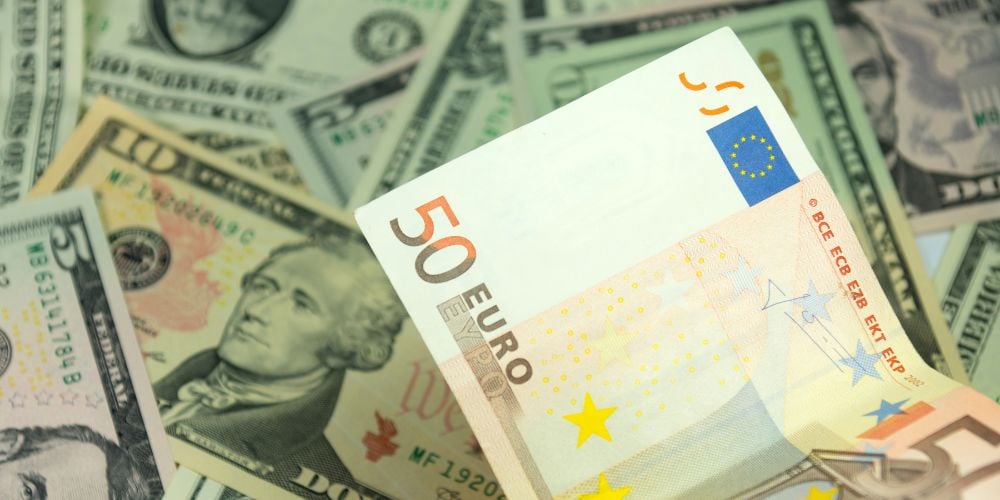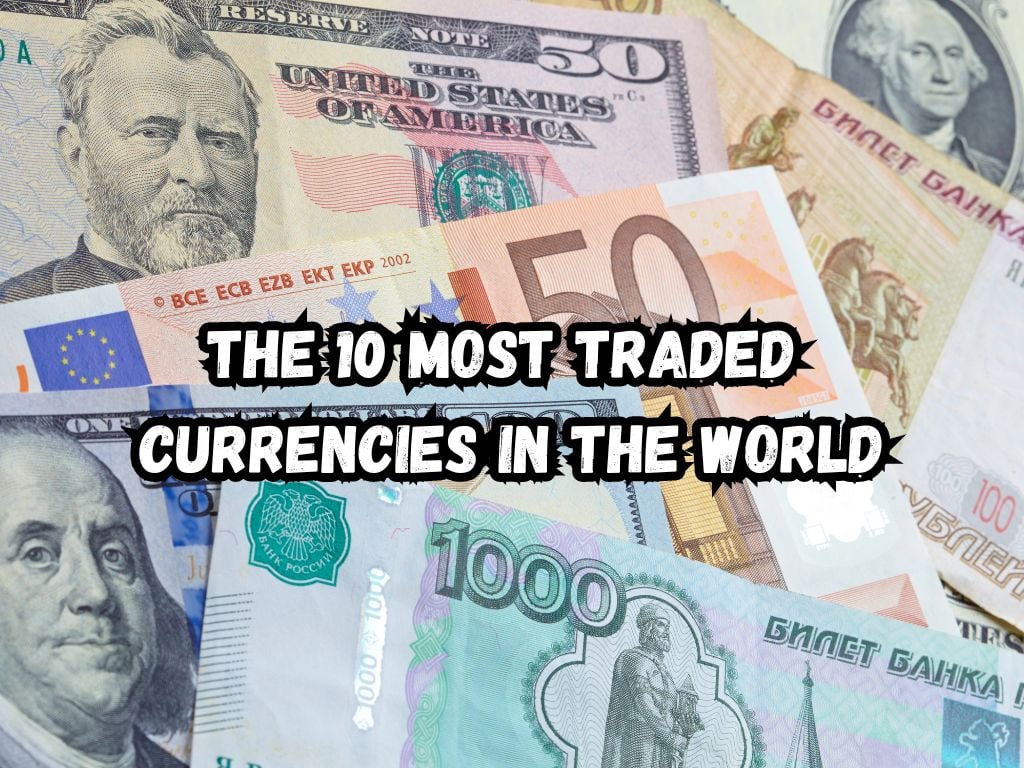As the backbone of international commerce and finance, currency trading plays a pivotal role in the global economy.
With a daily trading volume exceeding $6 trillion, the foreign exchange market, or Forex, is the largest and most liquid market in the world.
This bustling marketplace is where currencies are traded, each with differing levels of liquidity, influenced by the size and stability of their respective economies. Let’s learn about most traded currencies in the world.
Understanding Currency Trading
Currency trading involves the exchange of one currency for another. Traders and investors buy and sell currency pairs based on their expectations of currency movements.
These currency values fluctuate due to various factors such as economic data releases, political events, and central bank decisions. Understanding these dynamics is crucial for successful trading in the Forex market.
The 10 Most Traded Currencies in the World
The US Dollar (USD)
Dominating the Forex market, the US dollar is considered the world’s primary reserve currency. Due to its widespread use in global transactions and its role in pricing major commodities, the USD holds a pivotal place in international finance.
Central banks across the globe hold significant amounts of USD as part of their foreign exchange reserves.

The Euro (EUR)
The euro is the official currency of 19 of the 27 European Union countries. These nations collectively make up the Eurozone, an economic region with significant influence on the global economy.
The EUR plays a central role in international trade and finance, making it one of the most traded currencies.
The Japanese Yen (JPY)
Japan’s economy, highly oriented towards manufacturing and export, contributes to the yen’s prominence in the forex market.
Often seen as a safe-haven currency, investors and traders flock to the JPY during times of economic uncertainty or market volatility.
The British Pound Sterling (GBP)
With London being a major financial hub, the GBP enjoys high liquidity and is one of the world’s leading currencies.
The impact of political events like Brexit has brought significant volatility to the pound, attracting traders looking for opportunities in fluctuating markets.
The Australian Dollar (AUD)
Australia’s economy, rich in natural resources, directly influences the Australian dollar’s status.
The AUD is often correlated with commodity prices such as gold, making it an attractive currency for traders monitoring these markets.
The Canadian Dollar (CAD)
Canada’s economy, heavily reliant on its natural resources, impacts the Canadian dollar’s value. The CAD is closely linked to oil prices, offering an insight into the global energy market.
The Swiss Franc (CHF)
Switzerland’s economic stability and policy of banking secrecy have made the Swiss Franc a safe-haven currency.
Investors often turn to the CHF during times of geopolitical tension or financial uncertainty.
The Chinese Renminbi (CNY)
As China continues to grow as a global economic powerhouse, the Renminbi has become more prevalent in international transactions.
Efforts to internationalize the CNY have seen it included in the IMF’s Special Drawing Rights basket, reflecting its rising status in the global economy.
The Hong Kong Dollar (HKD)
Hong Kong’s significance in global finance and its peg to the US dollar make the HKD one of the most traded currencies. This relationship ensures stability and liquidity, vital for international investors and traders.
The New Zealand Dollar (NZD)
Known colloquially as the “Kiwi,” the New Zealand dollar is influenced by the country’s agricultural exports. The NZD’s value offers insights into global commodity markets, making it attractive to Forex traders.
Factors Affecting Currency Trades
Economic indicators, political stability, and unexpected events can sway currency values. Traders must stay informed about global economic data releases and political news to navigate the Forex market effectively.

Trading Tips and Strategies
Understanding liquidity and the impact of economic news can aid traders in developing effective trading strategies. Diversification and risk management are crucial to protecting investments in the volatile Forex market.
Pro Tips
- Keep an eye on central bank announcements, as they can significantly impact currency values.
- Stay updated with global economic indicators to anticipate market movements.
- Technical analysis can aid in identifying trading opportunities.
- Following experienced traders can provide valuable insights and guidance.
The Forex market’s complexity and constant flux require a strategic approach and thorough understanding.
The ten most traded currencies offer a window into the global economic landscape, presenting both challenges and opportunities for traders worldwide.
Frequently Asked Questions
What makes a currency widely traded on the global market?
A currency is widely traded on the global market due to the size of its home country’s economy, political stability, liquidity, and its role in the international finance system. Significant global commodities priced in a currency also boost its trade volume.
How does a currency’s trade volume affect its volatility?
High trade volume in a currency usually leads to lower volatility because large volumes of trades are executed with minimal price movement. Conversely, currencies with lower trade volumes can experience higher volatility due to fewer orders impacting the price more dramatically.
Why is the US dollar considered the world’s reserve currency?
The US dollar is considered the world’s reserve currency due to the United States’ economic stability, political influence, and the significant role its currency plays in global trade and finance. It’s also widely held by central banks and institutions for international transactions and investments.
What is the impact of central bank policies on currency trading?
Central bank policies have a profound impact on currency trading as they determine interest rates, control money supply, and influence inflation. Policies aimed at stimulating or cooling the economy can lead to currency appreciation or depreciation, affecting trading strategies and currency value.
Conclusion
The dynamic nature of the Forex market, influenced by various global factors, offers numerous trading opportunities.
The most traded currencies, backed by large and stable economies, play crucial roles in this vibrant market.
By staying informed and employing strategic trading practices, investors can navigate this complex yet rewarding landscape.


 Tags:
Tags:










